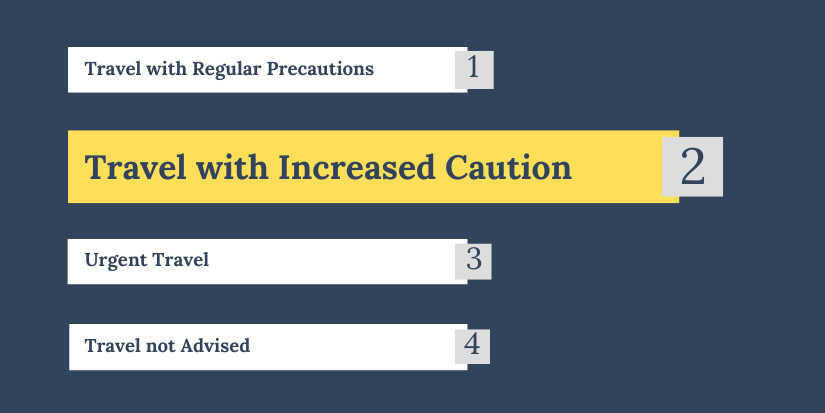
VISA REGIME
For holders of national passports and other travel documents: Visa required
For holders of diplomatic and official passports: Visa required
ENTERING AND LEAVING THE COUNTRY
Tourists can obtain visas on entry to Sri Lanka by presenting a valid passport, return ticket and hotel reservation details.
For business visas, which cannot be obtained upon entry into the country, it is necessary to contact the Department of Immigration and Emigration through the person who is inviting you to Sri Lanka. Free visas are exclusively submitted through the Sri Lankan diplomatic mission. Journalists also apply for a visa through the Sri Lankan diplomatic mission.
Additional information is available through the Embassy of Sri Lanka in Vienna www.srilankaembassy.at .
Travellers do not need health insurance or proof of vaccination to enter Sri Lanka, unless they come from an area affected by yellow fever.
Bringing firearms, ammunition, explosives, antiques and rare anthropological materials into Sri Lanka is strictly prohibited.
Bringing pets (dogs, cats, birds, etc.) into the country is allowed only with a valid permit issued by the competent Directorate General of Sri Lanka and accompanying documentation. For more details and contact information of the competent authorities, go to: https://daph.gov.lk/services/imp1
SOCIAL SECURITY AGREEMENT
No social security agreement has been concluded.
USEFUL INFORMATION
HEALTH SITUATION – It is not advisable to consume tap water, but only bottled water. Consumption of food bought from street vendors is also not recommended. Food should be thermally processed (especially fish and vegetables). Fresh food should only be eaten in places which meet the necessary hygiene requirements.
SECURITY SITUATION – Traditional tourist destinations in Sri Lanka are the capital Colombo, then Candy, Bentota, Hikkaduwa, and other places on the west and south coast. Since the end of the armed conflict in the country, it has been possible to visit the east coast of Sri Lanka. However, it is still not recommended to visit certain areas such as the Jaffna Peninsula and the Vani and Batticaloa areas. After terrorist attacks in April 2019, constant caution is required during one’s stay in Sri Lanka. Before planning a trip within Sri Lanka, travellers should consult certified travel agencies.
There are special tourist police units in Sri Lanka which tourists can contact in all major tourist centres (Tourist Police, Fort Police Station, Bank of Ceylon Mawatha, Fort, Colombo, phone number: 433342, Ethukala, Negombo Pushpadana Road, Kandy, phone number: 08 22222, National Holiday Resort, Bentota, phone number: 03475022, Police Station, Galle Road, Hikkaduwa, phone number: 095722).
TRANSPORT – The main airport in Sri Lanka is Bandaranaike International Airport, located 30 km north of Colombo. The Ceylon Tourist Board at the airport is open 24 hours a day. The national airline SriLankan Airlines organises air-taxi services for trips from Colombo to popular tourist destinations such as Candy and Bentota on the west, and Trincomale on the east coast, which can be reached in 30 to 40 minutes.
The express train operates on the Colombo–Candy–Colombo route. Given that the rail transport standards in Sri Lanka and in most countries in the region differ from the standards of rail transport and services in Europe (which also applies to intercity bus traffic), foreign tourists are generally advised to book seats in first class carriages.
The main local means of transportation in Sri Lanka are auto rickshaws and taxis. Since there are no taximeters in most rickshaws, the price of transportation to the desired destination is agreed with the drivers. There are also Dial-a-Taxi services in Sri Lanka (some of them are Kangaroo, GNTC Cabs, SHEL).
OTHER INFORMATION – The currency in Sri Lanka is the Sri Lankan rupee (LKR). One rupee has 100 cents. Money can be exchanged for the local currency in all hotels and banks in the city. In most hotels, restaurants and shops, it is possible to pay with international payment cards American Express, Visa International and Master Card, while Diners Club payment cards are acceptable in a smaller number of places.
When planning a trip to Sri Lanka, travellers should bear in mind that this is a country in the tropical climate zone with two monsoon periods: May–July and December–January. With the exception of mountainous areas where the temperature can drop to 16 degrees Celsius, in other parts of the country the temperature is generally above 30 degrees Celsius, with a high percentage of humidity, which should be kept in mind when planning longer outdoor stays and choosing appropriate clothing and footwear.
Contact information
For consular assistance and protection while in Sri Lanka, please contact the Embassy of the Republic of Serbia in the Republic of India, which covers Sri Lanka on a non-residential basis, at the following telephone number: 00 91 11 26872095, or e-mail: embassyofserbiadelhi@hotmail.com.
